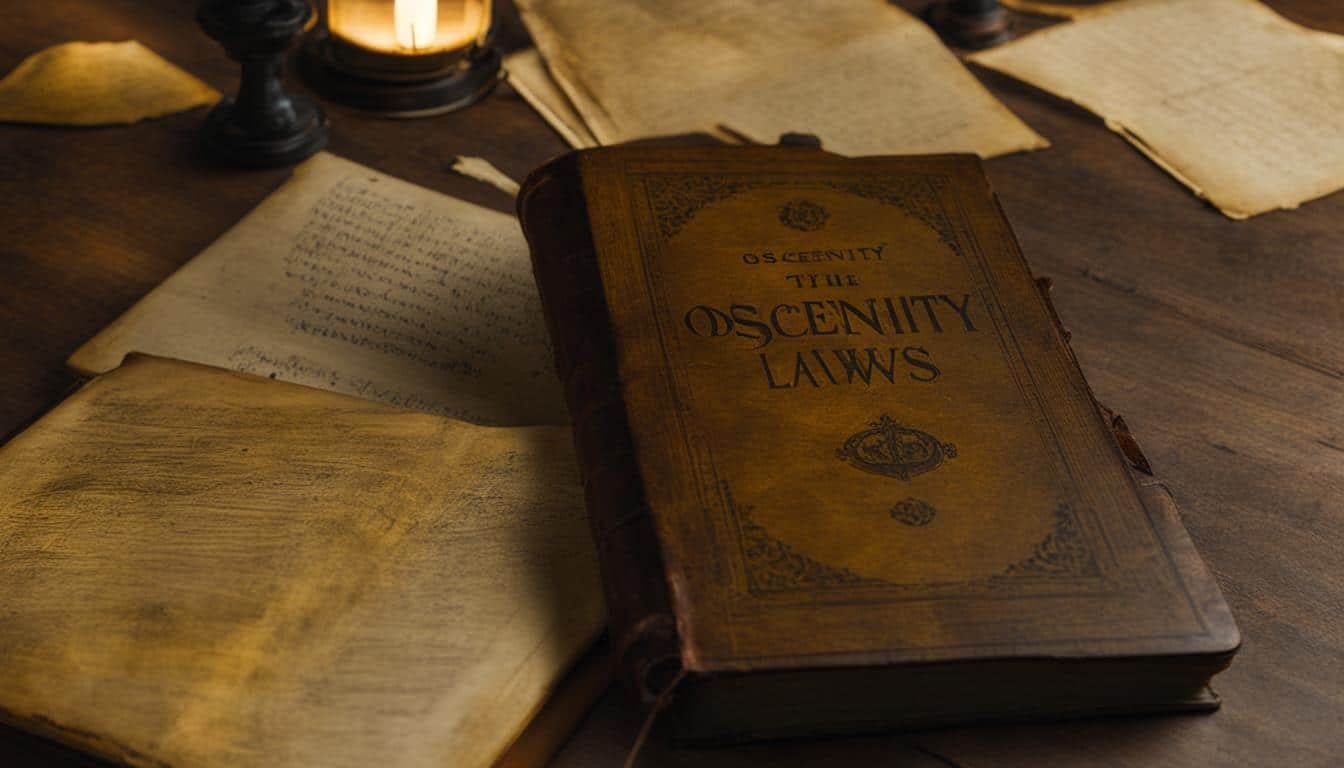Obscenity crimes are a unique category of speech that is not protected by the First Amendment, meaning it is not considered a form of free speech. These laws focus on prohibiting lewd, filthy, or disgusting words or images. However, it is important to note that indecent materials or depictions, while restricted in terms of time, place, and manner, are still protected by the First Amendment.
Defining obscenity in legal terms has been a challenge, but the current standard used is the Miller test. The Miller test consists of three criteria: 1) whether the average person, applying contemporary community standards, would find the work appeals to prurient interest, 2) whether the work depicts or describes sexual conduct in a patently offensive way, and 3) whether the work lacks serious literary, artistic, political, or scientific value.
Prior to the Miller test, the Roth test was used to define obscenity. The Supreme Court has grappled with issues surrounding the Miller test, but no alternative standard has replaced it. The court has also addressed obscenity in the digital age, such as in the cases of Reno v. ACLU and Ashcroft v. Civil Liberties Union.
Key Takeaways:
- The legal definition of obscenity focuses on prohibiting lewd, filthy, or disgusting words or images.
- Obscenity is not protected by the First Amendment, but indecent materials have some level of protection.
- The Miller test is currently used to determine if something is obscene, consisting of three criteria.
- Prior to the Miller test, the Roth test was used to define obscenity.
- The Supreme Court has addressed obscenity in the digital age with cases like Reno v. ACLU and Ashcroft v. Civil Liberties Union.
Federal Laws and Punishments for Obscenity Crimes
When it comes to obscenity crimes, federal laws play a crucial role in defining what is considered legal and punishable. These laws aim to regulate the distribution, sale, transportation, and production of obscene materials. Violators can face severe penalties, including fines, imprisonment, and registration as sex offenders.
Under federal laws, it is illegal to distribute, transport, sell, ship, mail, or produce obscene matter. Possession of obscene matter with the intent to sell or distribute is also prohibited. Moreover, the private possession of obscene material is generally not a criminal offense, but receiving such material through the use of the mails, common carriers, or interactive computer services can violate federal laws.
One crucial aspect of federal obscenity laws is the prohibition of obscenity involving minors. Offenders face even harsher punishments when minors are involved. It is illegal to transfer or attempt to transfer obscene matter to a minor under the age of 16, including over the Internet. Furthermore, visual representations that appear to depict minors engaged in sexual activity and are deemed obscene are also illegal.
To protect minors from harmful or obscene material online, federal laws also prohibit the use of misleading domain names, words, or digital images on the Internet. These laws aim to prevent the exploitation and deception of minors by ensuring they are not exposed to harmful content.
Federal Laws and Punishments for Obscenity Crimes Table
| Obscenity Law | Description |
|---|---|
| 18 U.S.C. § 1460 | Possession with intent to sell, and sale, of obscene matter on Federal property |
| 18 U.S.C. § 1461 | Mailing obscene or crime-inciting matter |
| 18 U.S.C. § 1462 | Importation or transportation of obscene matters |
| 18 U.S.C. § 1463 | Mailing indecent matter on wrappers or envelopes |
| 18 U.S.C. § 1464 | Broadcasting obscene language |
| 18 U.S.C. § 1465 | Transportation of obscene matters for sale or distribution |
| 18 U.S.C. § 1466 | Engaging in the business of selling or transferring obscene matter |
| 18 U.S.C. § 1466A | Obscene visual representations of the sexual abuse of children |
| 18 U.S.C. § 1467 | Criminal forfeiture |
| 18 U.S.C. § 1468 | Distributing obscene material by cable or subscription television |
| 18 U.S.C. § 1469 | Presumptions |
| 18 U.S.C. § 1470 | Transfer of obscene material to minors |
| 18 U.S.C. § 2252B | Misleading domain names on the Internet |
| 18 U.S.C. § 2252C | Misleading words or digital images on the Internet |
Key Obscenity Laws and Statutes in the United States
Understanding the key federal obscenity laws and statutes in the United States is crucial when discussing obscenity crimes. These laws provide the framework for prosecuting offenders and protecting society from harmful and obscene materials. Here are some important federal statutes that address obscenity:
18 U.S.C. § 1460: This statute focuses on the possession with intent to sell, and sale, of obscene matter on federal property. It aims to prevent the distribution of explicit materials in public spaces.
18 U.S.C. § 1462: Importation or transportation of obscene matters is prohibited under this statute. It ensures that obscene materials are not brought into the country or transported across state lines.
18 U.S.C. § 1466A: This statute specifically addresses obscene visual representations of the sexual abuse of children. It aims to protect minors from being exploited in explicit materials.
These are just a few examples of the federal obscenity statutes in place. It is important to note that these laws work in conjunction with the Miller test, which is used to evaluate whether a work is considered obscene. Additionally, federal child pornography laws, the Communications Decency Act, and the Child Online Protection Act play significant roles in combating obscenity crimes and protecting vulnerable individuals.
Source Links
- https://www.law.cornell.edu/wex/obscenity
- https://www.justice.gov/criminal-ceos/obscenity
- https://www.justice.gov/criminal/criminal-ceos/citizens-guide-us-federal-law-obscenity







